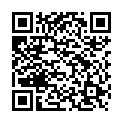|
|
|
| Module code: PdK-601 |
|
|
1V+1S (2 hours per week) |
|
5 |
| Semester: 6 |
| Mandatory course: yes |
Language of instruction:
German |
Assessment:
Course work: graded
[updated 01.10.2020]
|
PdK-601 (P322-0156) Childhood Education, Bachelor, ASPO 01.10.2017
, semester 6, mandatory course
PdK-601 (P322-0156) Childhood Education, Bachelor, ASPO 01.10.2019
, semester 6, mandatory course
|
30 class hours (= 22.5 clock hours) over a 15-week period.
The total student study time is 150 hours (equivalent to 5 ECTS credits).
There are therefore 127.5 hours available for class preparation and follow-up work and exam preparation.
|
Recommended prerequisites (modules):
None.
|
Recommended as prerequisite for:
|
Module coordinator:
Prof. Dr. Kerstin Rock |
Lecturer:
Prof. Dr. Kerstin Rock
[updated 12.09.2018]
|
Learning outcomes:
_ be able to define the terms cooperation, coordination and networking and understand how institutional cooperation and networking can be used as professional and political coordination and control mechanisms.
They will be able to justify and critically reflect on the necessity of cooperation and networking in social work and childhood pedagogy in a professional and legal manner.
They will be familiar with the prerequisites and implementation steps for successful institutional cooperation and be familiar with network management instruments.
They will have an overview of the central areas of cooperation in day-care facilities and will have critically examined the respective legal and professional framework, forms of cooperation and the didactic-methodological methods of different cooperation partners.
[updated 01.10.2020]
|
Module content:
During this course, students will:
_ discuss terms and forms of cooperation and networking and test instruments for describing and analyzing cooperation and network relationships
_ critically reflect on the technical and legal necessities of cooperation and networking as well as existing limits and obstacles.
_ address and discuss concepts of cooperation between child day-care facilities, child and youth welfare institutions and other social services as well as other actors in the educational and cultural sector in relation to their different legal, institutional and professional conditions
_ address the framework conditions for successful networking and cooperation and illustrate them with examples of good practice
_ trace essential steps in the development and maintenance of cooperative relationships and examine them with regard to the individual and institutional requirements.
[updated 01.10.2020]
|
Teaching methods/Media:
-Lecture
-Literature studies (individual work)
-Group work
-Presentations by the students
[updated 01.10.2020]
|
Recommended or required reading:
Bauer, P.; Ullrich, O. (Hrsg.) (2005). Mit Netzwerken professionell zusammenarbeiten. Bd. Institutionelle Netzwerke in Steuerungs- und Kooperationsperspektive. Tübingen.
Dahme, H.-J.; Wohlfahrt, N. (Hrsg.) (2000). Netzwerkökonomie im Wohlfahrtsstaat: Wettbewerb und Kooperation im Sozial- und Gesundheitssektor. Berlin.
Fischer, J.; Kosollek, T. (Hrsg.) (2013). Netzwerke und Soziale Arbeit. Weinheim, Basel.
Van Santen, E.; Seckinger, M. (2003). Kooperation: Mythos und Realität einer Praxis. München.
[updated 01.10.2020]
|


